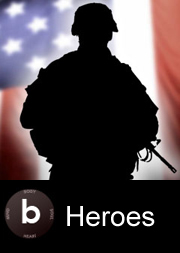 Retired US Air Force Colonel George Everette "Bud" Day was the only serviceman in Vietnam to be held prisoner in both North and South Vietnam camps. His multiple years in captivity forced him to rely on a sophisticated tap code he told my entire freshman class about once in a presentation at Michell Hall (A.K.A. The Mess Hall). I was a freshman cadet in the class of 1999, eating lunch under duress and listening to a legend on the podium describe years of painful and trying mental and physical torture. I felt rude chewing food in front of this guy, but his eyes lit up when he spoke of the tap code that connected him with every other prisoner who ever had to communicate this way. Messages were banged out in a necessity-driven, adapted Morse Code language of successive taps or knocks. The exchange had its own special meaning to the captive soldiers who resorted to using it, because it symbolized an unspoken victory in their fight to maintain their honor and camaraderie.
Retired US Air Force Colonel George Everette "Bud" Day was the only serviceman in Vietnam to be held prisoner in both North and South Vietnam camps. His multiple years in captivity forced him to rely on a sophisticated tap code he told my entire freshman class about once in a presentation at Michell Hall (A.K.A. The Mess Hall). I was a freshman cadet in the class of 1999, eating lunch under duress and listening to a legend on the podium describe years of painful and trying mental and physical torture. I felt rude chewing food in front of this guy, but his eyes lit up when he spoke of the tap code that connected him with every other prisoner who ever had to communicate this way. Messages were banged out in a necessity-driven, adapted Morse Code language of successive taps or knocks. The exchange had its own special meaning to the captive soldiers who resorted to using it, because it symbolized an unspoken victory in their fight to maintain their honor and camaraderie.Day's incredible saga of truly honorable and courageous service in the face of the worst conditions possible is the stuff of legend. It is no wonder his efforts earned him the Congressional Medal of Honor.
According to Day's Wikipedia Page, his Medal of Honor Citation Reads:
"On 26 August 1967, Col. Day was forced to eject from his aircraft over North Vietnam when it was hit by ground fire. His right arm was broken in 3 places, and his left knee was badly sprained. He was immediately captured by hostile forces and taken to a prison camp where he was interrogated and severely tortured. After causing the guards to relax their vigilance, Col. Day escaped into the jungle and began the trek toward South Vietnam. Despite injuries inflicted by fragments of a bomb or rocket, he continued southward surviving only on a few berries and uncooked frogs. He successfully evaded enemy patrols and reached the Ben Hai River, where he encountered U.S. artillery barrages. With the aid of a bamboo log float, Col. Day swam across the river and entered the demilitarized zone. Due to delirium, he lost his sense of direction and wandered aimlessly for several days. After several unsuccessful attempts to signal U.S. aircraft, he was ambushed and recaptured by the Viet Cong, sustaining gunshot wounds to his left hand and thigh. He was returned to the prison from which he had escaped and later was moved to Hanoi after giving his captors false information to questions put before him. Physically, Col. Day was totally debilitated and unable to perform even the simplest task for himself. Despite his many injuries, he continued to offer maximum resistance. His personal bravery in the face of deadly enemy pressure was significant in saving the lives of fellow aviators who were still flying against the enemy. Col. Day's conspicuous gallantry and intrepidity at the risk of his life above and beyond the call of duty are in keeping with the highest traditions of the U.S. Air Force and reflect great credit upon himself and the U.S. Armed Forces."
Day's sacrifices and soldiering on through the most intolerable conditions afforded him a reputation as one of the most decorated United States Military men since General Douglas MacArthur. He endured so much pain and suffering to protect his fellow pilots, and Colonel Day should be forever saluted as a hero for his selfless service.






0 comments:
Post a Comment